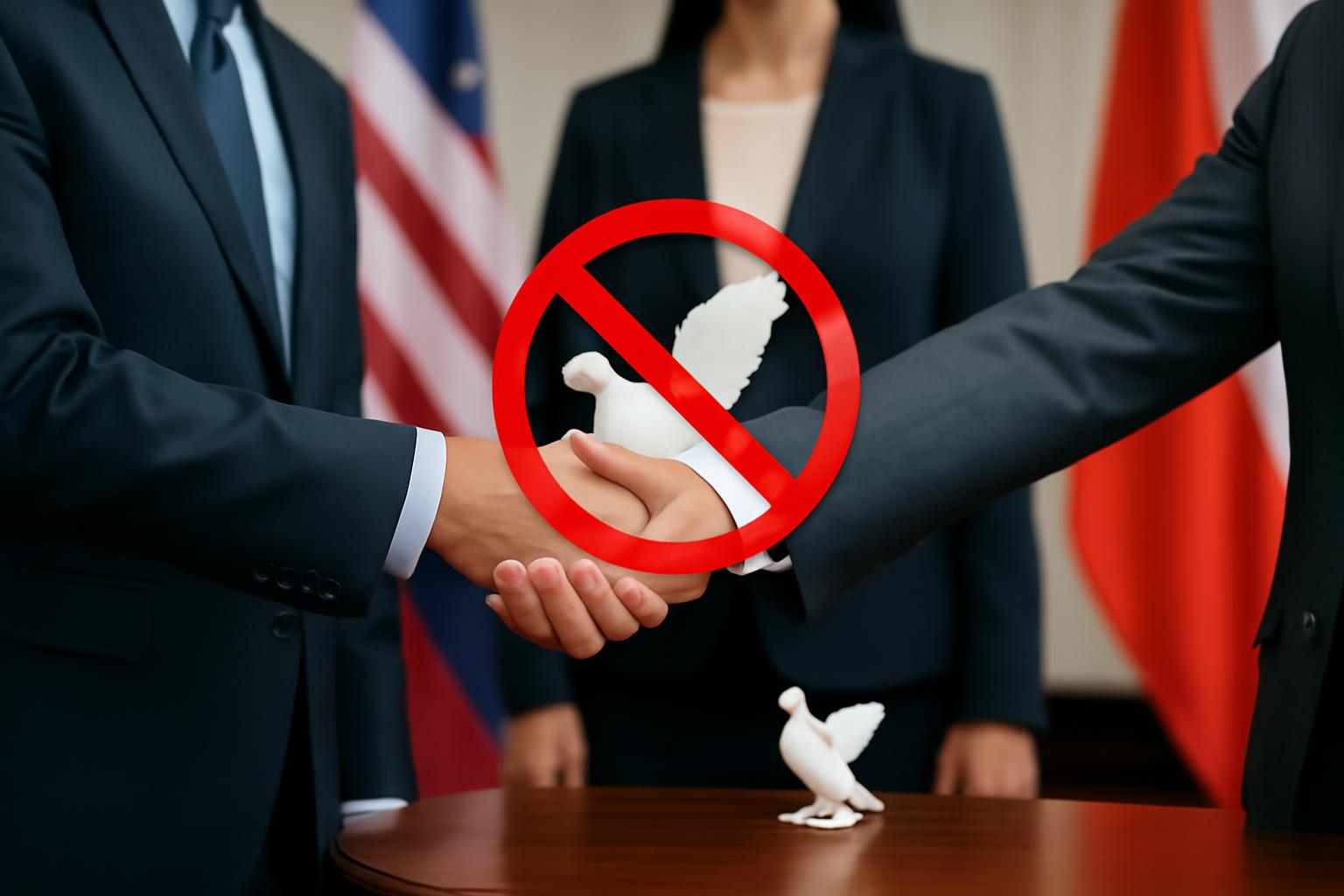What unfolded in Alaska was a display rather than a foundation. A summit between the American president and the Russian leader resembled a production in which the camera lens, not the compass of policy, steered the narrative. The hopes for a ceasefire or any tangible concession evaporated into a handshake that pleased followers and amused spectators but delivered nothing of substance. Putin’s smile suggested a triumphal overture of status rather than a serious commitment to change; Trump’s theater—red carpet, dramatic posture, talk of possibilities—left the world with the impression that the drama outweighed the decision. Behind the curtain, Ukraine endured another day of drones and missiles, a reminder that the real calculus of war and peace remains stubbornly empirical, not theatrical. The diplomatic choreography revealed the paradox of modern great-power management: leaders may wish to steer events, yet the outcomes depend on a lattice of credible constraints, not the charisma of the moment. Europe, for its part, appeared sidelined, its voice powerful in aspiration but less so in implementation, while Germany’s Merz was praised for a bold overture that somehow did not translate into a cohesive European strategy. And so the rhetoric of “no deal until the deal is ready” stood in stark contrast to the unyielding pace of the conflict on the ground, with a chorus of sanctions and possible negotiations promised but not guaranteed, and with questions about who will, in the end, bear responsibility for sustaining pressure and shaping a lasting arrangement.
What happened, in truth, is a reminder of the limits of diplomacy when it leans on spectacle rather than principle. The politics of great power bargaining cannot be reduced to a single handshake or a single summit; order does not arise from the charisma of a “Dealmaker” nor from the opportunistic leverage of surprise. The knowledge necessary to secure peace—understanding the incentives, the weaknesses, the interdependencies, the long-run costs—resides in a dispersed fabric of society, not in the decisive will of one man or the theatrical display of Washington and Moscow. Simply put, peace built on the illusion that brilliant improvisation can replace enduring institutions is a peace destined to be temporary and fragile.
We should recognize, with a clarity essential to free societies, that credible commitments in international affairs emerge from rules and expectations that guide behavior even when leaders turn their gaze elsewhere. The European question is revealing: if Europe wishes to play a constructive role, it must cultivate its own capacity to shape incentives and to sustain pressure through coherent, credible policies, not merely to applaud pithy statements from the sidelines. The present episode underscores the danger of allowing leadership charisma to substitute for institutional strength—the danger that the market of ideas about peace may be distorted by a noise of personalities rather than clarifying the signal of stable order.
The remedy lies in reaffirming the principle that peaceful coexistence among nations rests on a framework of predictable rules, economic interdependence, and mutually understood limits—conditions that encourage voluntary cooperation and the efficient use of knowledge dispersed across societies. It is not the glamour of a handshake that will secure a ceasefire, but the steadiness of a lawful order, the reliability of sanctions calibrated to real, verifiable effects, and a European unity capable of translating sentiment into sustained policy. If we mistake the weather vane for the compass, we risk steering toward a peace that is only a pause in the next phase of power struggles. Let Europe, and all free peoples, strive to construct the institutions and the incentives that make peace possible in a world where rulers come and go, but liberty and cooperation endure through the discipline of lawful order.
